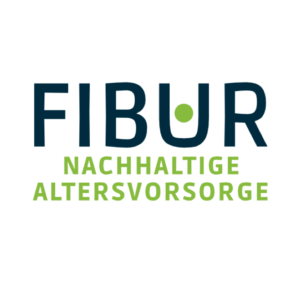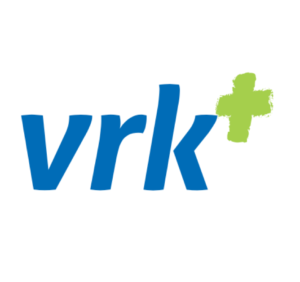
Sustainable health insurance companies not only pay attention to sustainability in internal processes, but also in their range of services. Here is an overview of the best.
When it comes to sustainability, very few people think of their health insurance company. After all, other factors tend to take a back seat when it comes to your own health. Health and sustainability are not mutually exclusive, but support each other.
In the end, the environment also benefits from a disease that does not occur in the first place, because resource-intensive treatments are no longer necessary. A good, sustainable health insurance company therefore offers extensive preventive services that go beyond the legal minimum.
In addition, an intact environment is an important health factor. Dirty air or heat waves caused by climate change are just as much a risk to physical well-being as flu viruses or accidents at work. A sustainable health insurance company should therefore pay attention to environmental protection in internal processes as well as in the choice of its service providers and investments so that its money does not flow into dirty business.
How do I find out whether a health insurance company is sustainable?
There are still no generally recognized seals that clearly identify a health insurance company as sustainable. In recent years, however, the topic of sustainable health insurance has definitely gained attention. The following rankings and awards offer a decision-making aid:
Euro Analysis
Since 2022, the Euro-Magazine in cooperation with the German Financial Service Institute has been providing what is probably the largest study of sustainability aspects in health insurance companies. In the euro study, all open statutory health insurance companies are analyzed every year.
Both the corporate culture and the range of services are put to the test. Corporate culture is about social aspects (e.g. equal treatment regardless of gender), environmental aspects (e.g. publication of a CO2 balance sheet) and economic aspects (e.g. consideration of ESG criteria when selecting suppliers). When it comes to the range of services, there are points for pension benefits that go beyond the statutory catalogue. Digitization and transparency are also rated positively.
In the current issue from August 2023, the AOK Baden-Württemberg emerged as the test winner with the highest overall rating of 89 percent. Among the providers available nationwide, Techniker Krankenkasse (TK) took first place with 85 percent.
The following funds received top ratings of over 80 percent (in alphabetical order):
- AOK Baden-Württemberg (only in Baden-Württemberg)
- AOK Bavaria (only in Bavaria)
- AOK Plus (only in Saxony and Thuringia)
- Barmer
- Bergische Krankenkasse (only in Hamburg, Hesse and NRW)
- BKK VBU
- DAK health
- HEK – Hanseatic Health Insurance
- Pronova BKK
- Securvita health insurance (not in Bremen and Saarland)
- Technicians’ Health Insurance
The BKK ProVita, which is well-known in the sustainability scene, “only” came up with a result of 77 percent in the evaluation. This corresponds to a rating of “very good” and 14th place out of 73. But since BKK ProVita is positioned as an explicitly sustainable health insurance company like no other of the competitors, more was to be expected.
A spokesman for BKK ProVita attributes the placement to Utopia, among other things, to the very broad concept of sustainability in the analysis. For example, it is not clear why the stability of the contribution rate was used as a criterion in a sustainability comparison.
Utopia says: The criticism of the euro ranking is partly justified. Because explicit environmental aspects – i.e. sustainability in the narrower sense – only account for one eighth of the overall rating. The selection of criteria is therefore not entirely consistent for a sustainability ranking. Nevertheless, the results are of value: only those who offer a wide range of services and comply with high ESG standards, i.e. pay attention to environmental protection, social aspects and clean corporate governance, end up high.
In addition, Euro-Magazine has also published rankings in the individual categories. In this way, interested parties can form a more accurate judgment and decide for themselves how to weight the categories. For example, if you look at the environmental aspects in isolation, BKK ProVita ranks third behind Techniker Krankenkasse and BKK firmus.
Leaderboard: Ethical Insurance Providers
 1st placegreensurance
1st placegreensurance
5.0
37
DetailGreensurance**
 place 2fibur
place 2fibur
5.0
27
DetailFibur**
 place 3fair pension
place 3fair pension
5.0
15
Detailfair board**
 4th placeAdded value
4th placeAdded value
5.0
12
detail
 5th placePRC
5th placePRC
5.0
2
detail
German Sustainability Award
In 2023, for the first time, health insurance companies will also have their own category in the German Sustainability Award. The nominations have already been made. These are both statutory and private funds. These were selected by a 140-strong expert jury as pioneers in the sustainable transformation of their industry. Here is the list of nominees:
- Alliance (private)
- AOK Baden-Württemberg (only in Baden-Württemberg)
- Barmer
- BKK ProVita
- BKK VBU
- Debeka (private)
- Hanseatic Mercury (private)
- HUK Coburg (private)
- Pronova BKK
- Technicians’ Health Insurance
Among other things, the sustainable operation of offices and buildings, employee mobility and the digitization of processes were evaluated. In addition, the health insurance companies should support their policyholders in living healthier lives – for example with bonus programs and prevention offers.
native rating
The native rating is a project of the Greensurance Foundation and was actually intended as a sustainability ranking for property insurance. However, since many of the insurance companies examined also offer private health insurance and some of the underlying data relates to the group level, the results are at least partially transferrable. However, Native only examined 19 property insurers, which is why the rating does not reflect the entire insurance landscape in Germany.
No insurance received the highest gold award. Such a rating is only available from a rating of 65 percent. Allianz was the only one to break the 50 percent mark. A total of five providers received the silver native rating, which was awarded from 45 percent, only three of them also offer private health insurance:
- Alliance (52%)
- R+V (50%)
- generalized (46%)
Bronze is available from 30 percent. Eight insurers, six of them offering health insurance, received the Bronze Native seal:
- The Bavarian (44%)
- ERGO (36%)
- Barmenia (35%)
- AXA (34%)
- Württemberg (31%)
- HUK (31%)
According to Native, the reason why the hurdles for an award are so low is that the insurance business still has a lot of potential for development. The thresholds are likely to be raised in future ratings, according to their website.
It should be emphasized that the alliance cannot be called sustainable just because it is in first place in the native rating. It’s just better than the very weak competition. As early as 2020, the Fair Finance Guide examined six life insurance providers for sustainable and social criteria. Here, too, Allianz came out on top – with just 39 percent.
What is remarkable, however, is how Allianz massively improved its native rating within a year and a half. When it was first issued in February 2022, the Munich insurance company was still at 33 percent. So even if a serious transformation really seems to be taking place here, Allianz still has to do more to earn the sustainable rating. Because it still excludes only a few controversial business areas, namely banned weapons, coal mining and electricity generation from coal, from investments in whole or in part.
Other awards and criteria
There are also other awards and criteria that speak for the sustainability of a health insurance company. For example, Pronova BKK has its sustainability certified by TÜV, BKK VBU has a sustainability report based on the German Sustainability Code, and BKK ProVita publishes a balance sheet for the common good.
Germany Test also honors statutory health insurance companies with a high level of sustainable commitment every year. The test winners in 2023 are AOK Bayern (regional) and Barmer (national). However, the results are only based on the survey of customers. So the health insurance company that makes the most lasting impression wins and not the one that really is the most lasting, which greatly limits the meaningfulness of this award.
Conclusion: Which health insurance companies are sustainable?
The AOK Baden-Württemberg does very well with the statutory health insurance companies, but is only available regionally. The Techniker Krankenkasse, BKK VBU, Pronova BKK and Barmer offer a high standard of sustainability nationwide. Utopia is also convinced of the BKK ProVita because, as a sustainable pioneer among health insurance companies, it has promoted this important topic in Germany.
Allianz is currently in the lead when it comes to private health insurance. Not only has she been nominated for the German Sustainability Award, she also has the best native rating. However, the latter is still quite weak at 52 percent and relates to Allianz’s property insurance division. Unfortunately, there are still no comprehensive sustainability analyzes of private health insurance companies. For this reason and because Allianz only excludes a few problematic sectors from its business, we cannot yet make any recommendations in the area of private health insurance.
The above ratings provide a rough overview of which health insurance companies are among the more sustainable in Germany. Nevertheless, Utopia recommends looking at the websites of the respective providers if you are interested. There you can find out more about the extent to which the health insurers are committed to sustainability and what special services they offer.
Read more on Techzle\.com:
- Ethical banks: The 6 best at a glance
- Sustainable overnight money: Here you will find the best interest rates
- Sustainability check: How green is the current account Future from ING and Share?